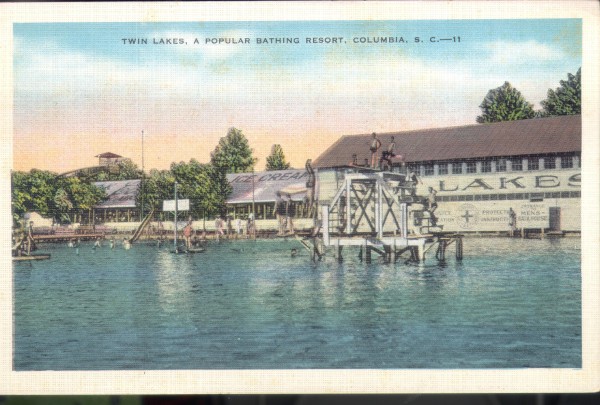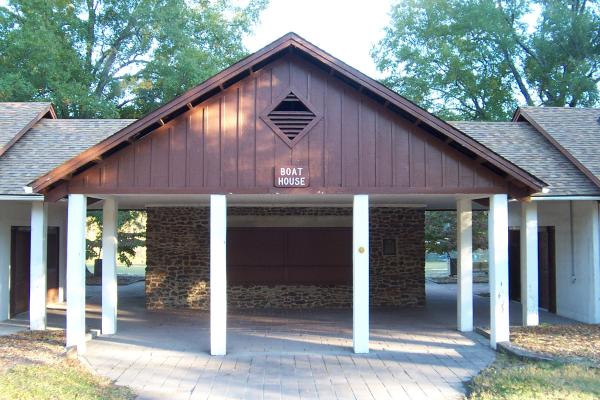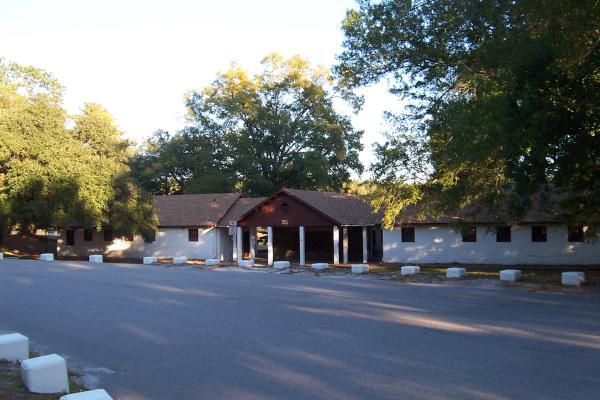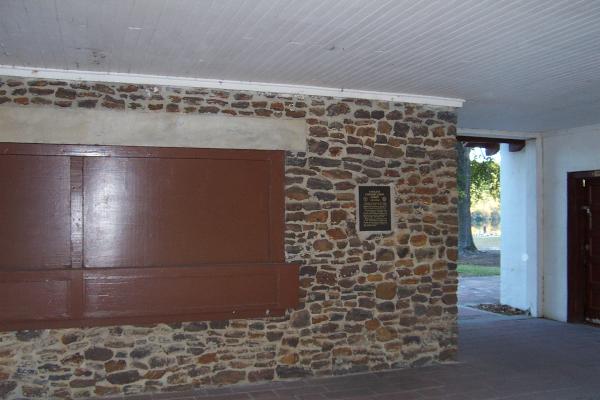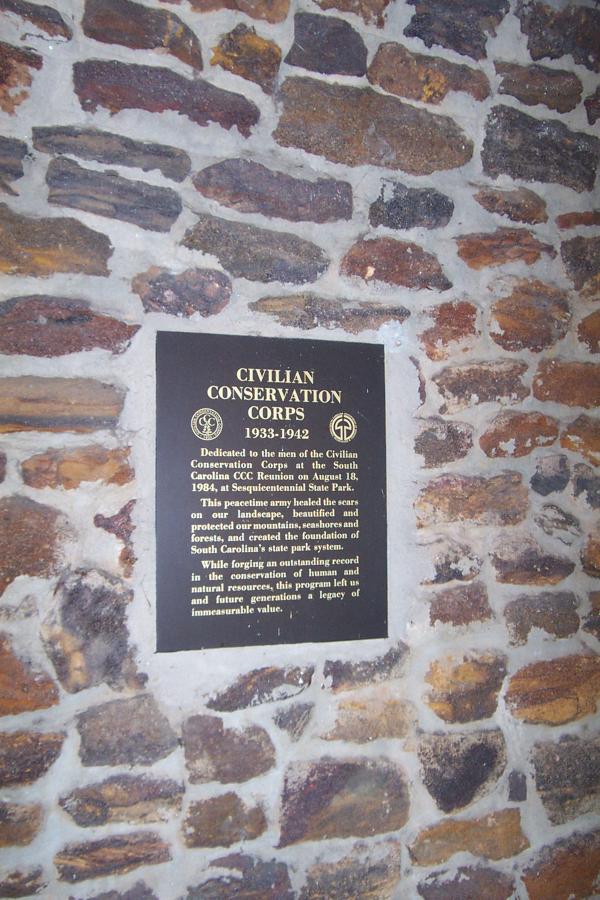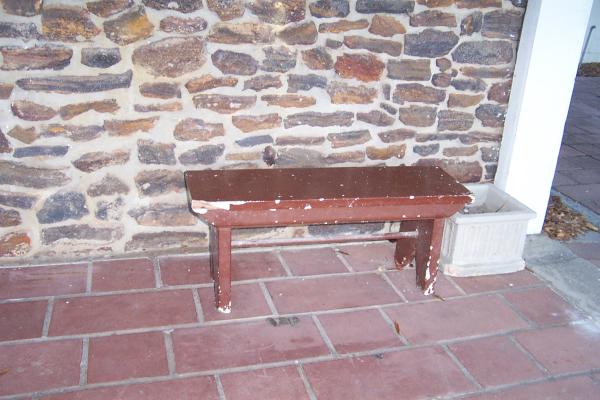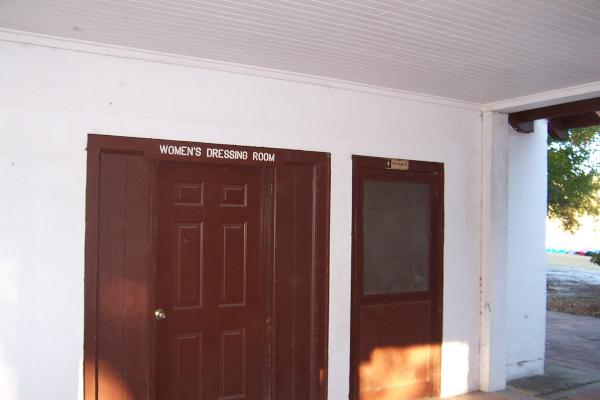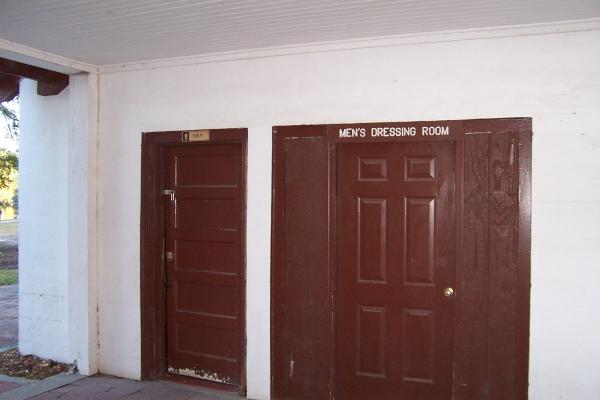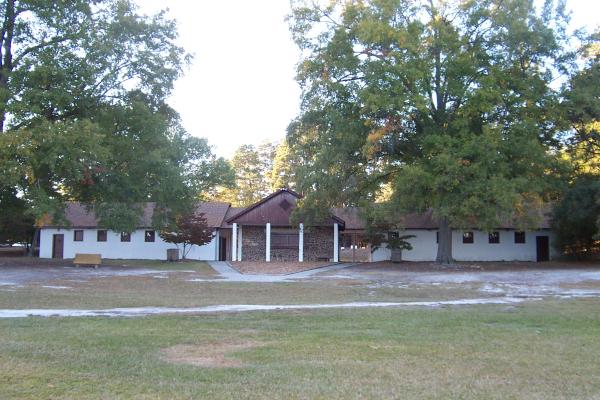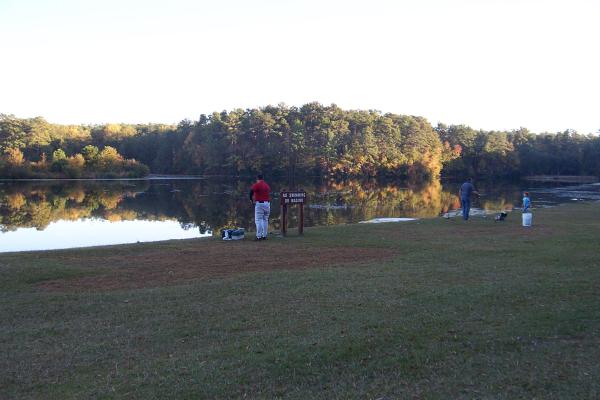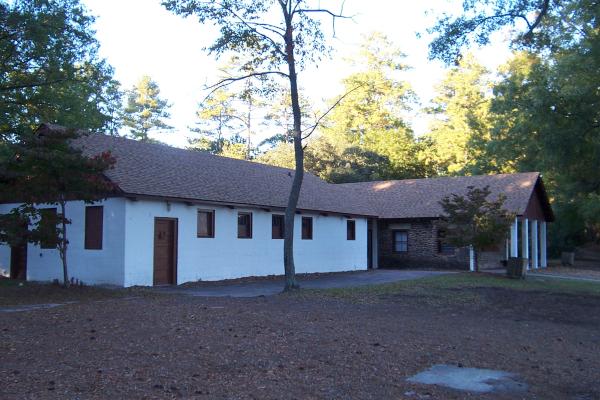Archive for the ‘swimming’ tag
Twin Lakes Bathing Resort, Twin Lakes Road: 1940s (?) 5 comments
Although I've never been to the area, there is still a Twin Lakes Park associated with Fort Jackson (the Google link to the left brings up some maps, this is a more official link), as well as the titular pair of lakes (though a google review notes one of them has been drained, presumably since the Great Flood of 2015). These write-ups lead me to believe that facilities like the ones on the postcard no longer exist there.
Indeed, growing up in the 1960s, I never heard anything about a Twin Lakes swimming area. Of course as a USC family, we had access to Bell Camp for lake swimming, so we never would have gone there. Still, I would have expected to hear about other people going if it were still around. One key may be the notation on the post card that the site is near Camp Jackson. As far as I can tell, Camp Jackson was renamed Fort Jackson during the build up to World War II. (This site gives 1940 as the date for the name change). That being the case, the resort could have been long closed by the 1960s.
Does anyone have any more information about this place?
No Swimming at Sesqui: 1990s 31 comments
The Boat House at Sesqui also used to be the Bath House. I didn't swim there too often since we had access to Bell Camp, but it was an odd little setup.
The park guys in the mid-section of the building (there is, or was a counter behind those wooden shutters) would give you a wire hamper and a honking big safety-pin with a numbered stamped metal tag. You would go into the Men's Dressing Room, strip out of your clothes and put them in the basket, put on your trunks, fasten the safety-pin through them, and hand the hamper to the park guys. They would put the basket with your clothes on a shelf inside and you would go swim. After you finished, you would turn in the safety-pin, they would match it to a wire hamper and give you your clothes back. Even at the time, it seemed a rather quaint and archaic procedure.
The Boat House / Bath House, like a lot of the original Sesqui structures, was built by the Civilian Conservation Corps. This was a Federal government team recruited during the Great Depression from the vast ranks of the able-bodied but unemployed. The CCC did a lot of great work on public projects, kept a lot of men off the dole and probably not coincidentally helped forestall any more Bonus Army-like incidents. I know they also built the main structures at Poinsett State Park and Florida Caverns State Park. Their work tends to have an identifiable style, and the Boat House is a good example of it. I suspect the bench alongside the structure goes back to that era as well.
I think that American youth have gradually been undergoing a "swimming wussification" over the last several generations. My grandparents' generation thought nothing of jumping into totally unimproved "swimming holes". My mother's generation were happy to swim in Hartsville's minimally improved "Black Creek". I, on the other hand, already didn't really like swimming in lakes. Bell Camp was fine since the swimming area in the section shallow enough to touch ground had had all the stumps removed and the bottom covered with sand. (Still some of my peers were irked at the way the water turned any swimsuit to yellow). The Sesqui lake was a bit too slimy for my tastes, and I didn't like touching bottom at all. I suspect the generations after me didn't want anything to do with lakes as far as swimming went. At any rate Sesqui banned swimming in the 90s, and I have to think falling demand for lake swimming had something to do with it. I read the news in The State and remarked on the end of an era though not one I had much partcipated in. I don't know if the ban was state-wide, but last time I went into Poinsett it applied there as well.
The lake is still available for fishing and walking around, but like many lakes, it has been so overtaken by filthy waterfowl, that even if you liked lake swimming, you would hesitate to thread the feces-laden-minefield from the boat house to the water's edge. Even if you could still get a hamper and pin.
